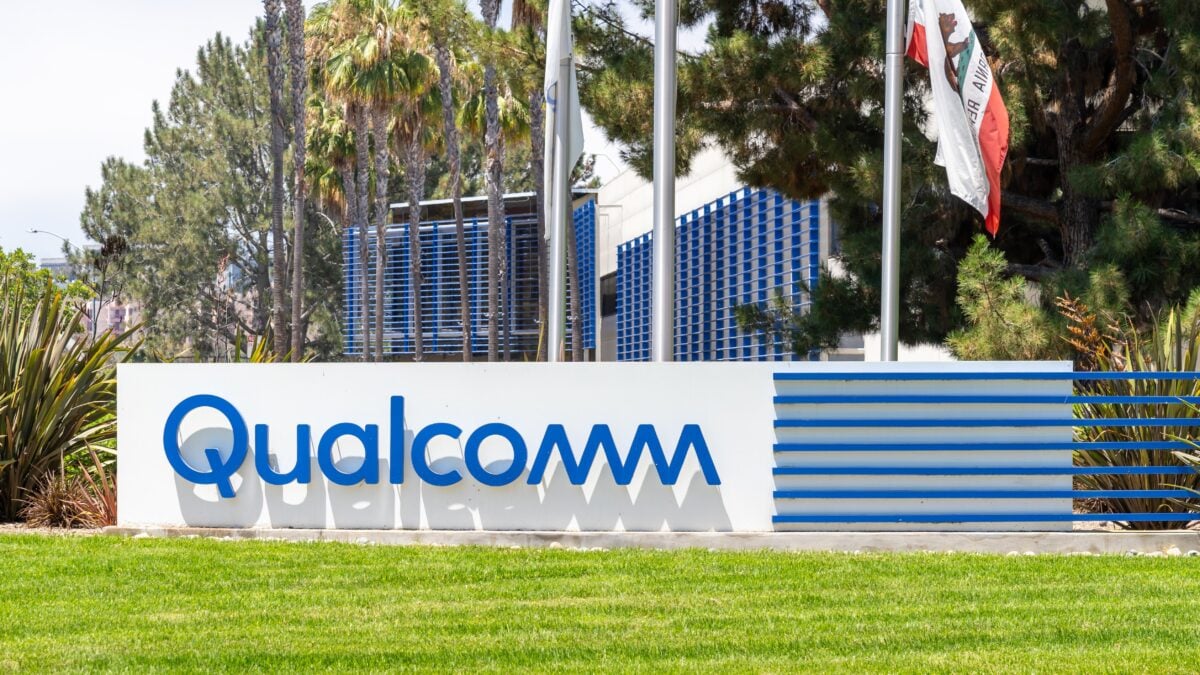TLDRs;
Contents
- Qualcomm CEO says Intel’s chip technology isn’t advanced enough, keeping production with TSMC and Samsung instead.
- Intel struggles with declining sales and manufacturing delays, losing Qualcomm as a potential foundry customer.
- Qualcomm expands into automotive with BMW’s self-driving system and returns to data centers with Nvidia-linked AI chips.
- Decision reflects Intel’s uphill battle to regain leadership as Qualcomm diversifies beyond smartphones.
Qualcomm has once again passed over Intel as a potential manufacturing partner, citing a lack of advanced chip-making capabilities, according to comments from CEO Cristiano Amon.
Instead, the company will continue relying on Taiwan Semiconductor Manufacturing Co. (TSMC) and Samsung Electronics, two of the world’s leading semiconductor foundries.
Amon noted that Intel’s manufacturing processes are currently not advanced enough to meet Qualcomm’s demanding efficiency and performance standards. However, he added that Qualcomm is open to considering Intel in the future, provided the U.S. chipmaker can improve its technology and catch up with industry leaders.
Qualcomm Keeps TSMC, Samsung as Core Partners
Qualcomm, best known for designing Snapdragon chips used in smartphones, does not manufacture its own semiconductors. Instead, it outsources production to established foundries.
Both TSMC and Samsung have long been critical partners, providing cutting-edge nodes that power everything from smartphones to automotive systems.
Intel, once the undisputed leader in semiconductor manufacturing, has seen its dominance erode in recent years due to delays in advancing to smaller, more efficient process technologies. This has left room for rivals like TSMC and Samsung to establish themselves as industry benchmarks in advanced chip fabrication.
Intel’s Struggles Amid Declining Sales
Intel is aggressively pursuing new customers as it battles declining PC sales and increased competition in both consumer and enterprise markets.
The company has been seeking to reposition itself as a foundry capable of producing chips for third parties, a major strategic shift from its history of manufacturing only for its own designs.
Yet for Qualcomm, the technology gap remains too wide. Amon made it clear that unless Intel demonstrates significant improvements in efficiency and performance, Qualcomm will not be shifting any of its production away from TSMC or Samsung in the near term.
Qualcomm Expands Into Automotive and AI
While distancing itself from Intel as a supplier, Qualcomm is aggressively diversifying its portfolio beyond smartphones. The company recently announced the Snapdragon Ride Pilot, a new self-driving platform designed for BMW’s iX3 SUV. The system balances high computational power with low energy consumption, reflecting Qualcomm’s strategy of entering the fast-growing automotive technology sector.
In May 2025, Qualcomm also revealed plans to launch AI-focused data center processors that will connect directly with Nvidia’s GPUs and software stack. This marks a return to the data center market, where Qualcomm had previously stumbled with its Centriq 2400 processor in 2017. Backed by its acquisition of Nuvia in 2021, Qualcomm is now better positioned with advanced Arm-based CPU technology tailored for AI and cloud computing.
The Bigger Picture
Qualcomm’s decision highlights how far Intel still needs to go to reclaim leadership in chip manufacturing.
While Intel remains a dominant name in CPUs, its absence from Qualcomm’s supply chain underscores the structural challenges it faces in winning major contracts from fabless chip designers.
For Qualcomm, sticking with TSMC and Samsung ensures access to cutting-edge nodes, essential for powering next-generation smartphones, cars, and AI-driven data centers. Meanwhile, Intel continues to chase both technological parity and customer trust, two elements that Qualcomm has made clear are non-negotiable.


